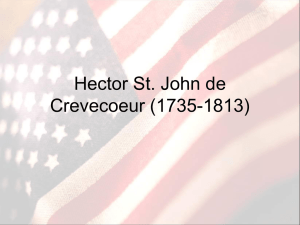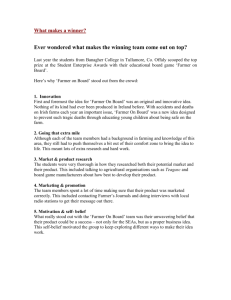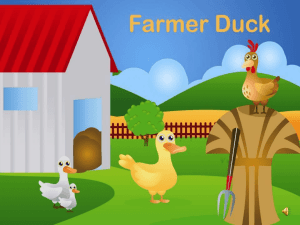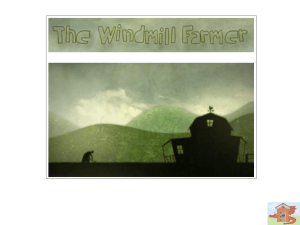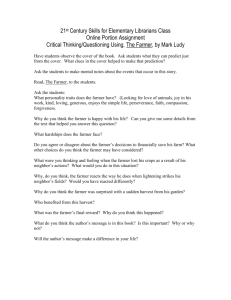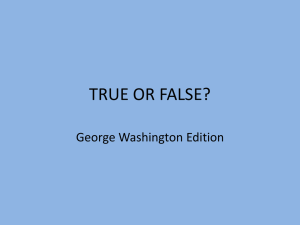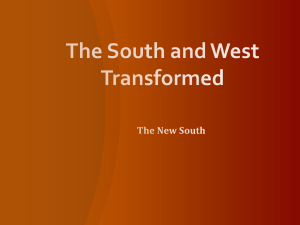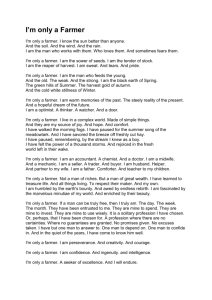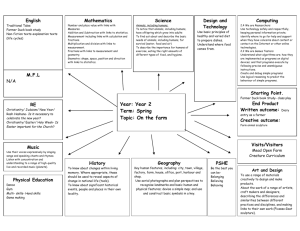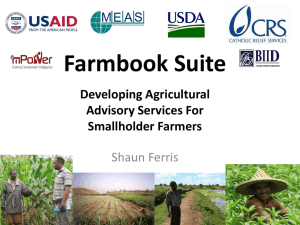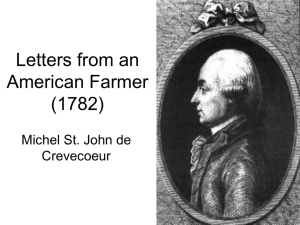Letters from an American Farmer: Letter III – What is an American
advertisement
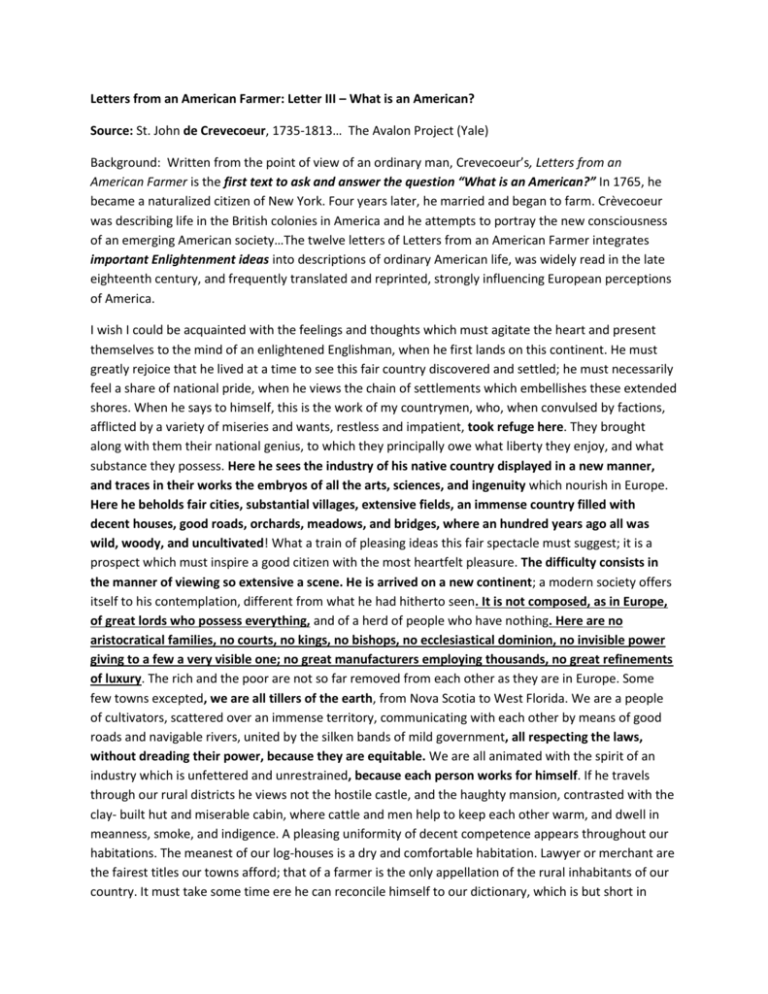
Letters from an American Farmer: Letter III – What is an American? Source: St. John de Crevecoeur, 1735-1813… The Avalon Project (Yale) Background: Written from the point of view of an ordinary man, Crevecoeur’s, Letters from an American Farmer is the first text to ask and answer the question “What is an American?” In 1765, he became a naturalized citizen of New York. Four years later, he married and began to farm. Crèvecoeur was describing life in the British colonies in America and he attempts to portray the new consciousness of an emerging American society…The twelve letters of Letters from an American Farmer integrates important Enlightenment ideas into descriptions of ordinary American life, was widely read in the late eighteenth century, and frequently translated and reprinted, strongly influencing European perceptions of America. I wish I could be acquainted with the feelings and thoughts which must agitate the heart and present themselves to the mind of an enlightened Englishman, when he first lands on this continent. He must greatly rejoice that he lived at a time to see this fair country discovered and settled; he must necessarily feel a share of national pride, when he views the chain of settlements which embellishes these extended shores. When he says to himself, this is the work of my countrymen, who, when convulsed by factions, afflicted by a variety of miseries and wants, restless and impatient, took refuge here. They brought along with them their national genius, to which they principally owe what liberty they enjoy, and what substance they possess. Here he sees the industry of his native country displayed in a new manner, and traces in their works the embryos of all the arts, sciences, and ingenuity which nourish in Europe. Here he beholds fair cities, substantial villages, extensive fields, an immense country filled with decent houses, good roads, orchards, meadows, and bridges, where an hundred years ago all was wild, woody, and uncultivated! What a train of pleasing ideas this fair spectacle must suggest; it is a prospect which must inspire a good citizen with the most heartfelt pleasure. The difficulty consists in the manner of viewing so extensive a scene. He is arrived on a new continent; a modern society offers itself to his contemplation, different from what he had hitherto seen. It is not composed, as in Europe, of great lords who possess everything, and of a herd of people who have nothing. Here are no aristocratical families, no courts, no kings, no bishops, no ecclesiastical dominion, no invisible power giving to a few a very visible one; no great manufacturers employing thousands, no great refinements of luxury. The rich and the poor are not so far removed from each other as they are in Europe. Some few towns excepted, we are all tillers of the earth, from Nova Scotia to West Florida. We are a people of cultivators, scattered over an immense territory, communicating with each other by means of good roads and navigable rivers, united by the silken bands of mild government, all respecting the laws, without dreading their power, because they are equitable. We are all animated with the spirit of an industry which is unfettered and unrestrained, because each person works for himself. If he travels through our rural districts he views not the hostile castle, and the haughty mansion, contrasted with the clay- built hut and miserable cabin, where cattle and men help to keep each other warm, and dwell in meanness, smoke, and indigence. A pleasing uniformity of decent competence appears throughout our habitations. The meanest of our log-houses is a dry and comfortable habitation. Lawyer or merchant are the fairest titles our towns afford; that of a farmer is the only appellation of the rural inhabitants of our country. It must take some time ere he can reconcile himself to our dictionary, which is but short in words of dignity, and names of honour. There, on a Sunday, he sees a congregation of respectable farmers and their wives, all clad in neat homespun, well mounted, or riding in their own humble waggons. There is not among them an esquire, saving the unlettered magistrate. There he sees a parson as simple as his flock, a farmer who does not riot on the labour of others. We have no princes, for whom we toil, starve, and bleed: we are the most perfect society now existing in the world. Here man is free as he ought to be; nor is this pleasing equality so transitory as many others are. Many ages will not see the shores of our great lakes replenished with inland nations, nor the unknown bounds of North America entirely peopled. Who can tell how far it extends? Who can tell the millions of men whom it will feed and contain? for no European foot has as yet travelled half the extent of this mighty continent! The next wish of this traveller will be to know whence came all these people? they are a mixture of English, Scotch, Irish, French, Dutch, Germans, and Swedes. From this promiscuous breed, that race now called Americans have arisen. The eastern provinces must indeed be excepted, as being the unmixed descendants of Englishmen. I have heard many wish that they had been more intermixed also: for my part, I am no wisher, and think it much better as it has happened. They exhibit a most conspicuous figure in this great and variegated picture; they too enter for a great share in the pleasing perspective displayed in these thirteen provinces. I know it is fashionable to reflect on them, but I respect them for what they have done; for the accuracy and wisdom with which they have settled their territory; for the decency of their manners; for their early love of letters; their ancient college, the first in this hemisphere; for their industry; which to me who am but a farmer, is the criterion of everything. There never was a people, situated as they are, who with so ungrateful a soil have done more in so short a time. Do you think that the monarchical ingredients which are more prevalent in other governments, have purged them from all foul stains? Their histories assert the contrary. In this great American asylum, the poor of Europe have by some means met together, and in consequence of various causes; to what purpose should they ask one another what countrymen they are? Alas, two thirds of them had no country. Can a wretch who wanders about, who works and starves, whose life is a continual scene of sore affliction or pinching penury; can that man call England or any other kingdom his country? A country that had no bread for him, whose fields procured him no harvest, who met with nothing but the frowns of the rich, the severity of the laws, with jails and punishments; who owned not a single foot of the extensive surface of this planet? No! urged by a variety of motives, here they came. Every thing has tended to regenerate them; new laws, a new mode of living, a new social system; here they are become men: in Europe they were as so many useless plants, wanting vegetative mould, and refreshing showers; they withered, and were mowed down by want, hunger, and war; but now by the power of transplantation, like all other plants they have taken root and flourished! Formerly they were not numbered in any civil lists of their country, except in those of the poor; here they rank as citizens. By what invisible power has this surprising metamorphosis been performed? By that of the laws and that of their industry. The laws, the indulgent laws, protect them as they arrive, stamping on them the symbol of adoption; they receive ample rewards for their labours; these accumulated rewards procure them lands; those lands confer on them the title of freemen, and to that title every benefit is affixed which men can possibly require. This is the great operation daily performed by our laws. From whence proceed these laws? From our government. Whence the government? It is derived from the original genius and strong desire of the people ratified and confirmed by the crown. This is the great chain which links us all, this is the picture which every province exhibits, the good regulation of their families, and for extending the trade and the dominion of our mother country. Questions: Wow…one of my favorite pieces to read… there is so much here… ! 1 What do you notice? 2 Consider his claims… What could he be overlooking? [ it is so positive, really, the earliest piece on AMERICAN EXCEPTIONALISM… 3 Pick one piece that you believe is most consistent with E Pluribus Unum. Why?
